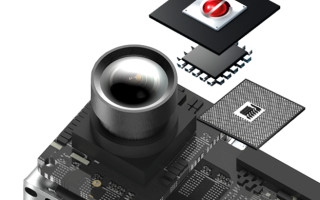eCapture Launches Small Form Factor 3D Stereo Depth Sensing Camera for Robotics and Object Tracking
August 23, 2021
News

eCapture, a brand focused on developing technology for the growing computer vision market, introduced the small form factor stereoscopic 3D depth sensing camera.
The new LifeSense G53 is 50 x 14.9 x 20 mm and is designed for depth capture and object tracking for industrial, robotics, and other applications driven by AI.
The first in the cost-effective eCapture line, the G53 provides a 50-degree field of view (FOV) and includes two Mono Sensor pairs for various resolutions of stereo, mono, and depth disparity/distance map output via USB. The camera is ideal for development of Robots, Automated Guided Vehicles (AGV) and Autonomous Mobile Robots (AMR), Goods to Person (G2P) delivery, as well as fast-motion depth capture.
The 3D computer vision technology is critical for AI applications, enabling autonomous functionality for software and machines, from robotic spatial awareness to scene understanding, object recognition, and better depth and distance sensing for enhanced intelligent vehicles. According to Meticulous Research, the 3D and machine vision market is expected to double from $1.35 billion in 2020 to $2.65 billion in 2027.
According to the company, leading robotics companies recently incorporated eCapture cameras with depth vision to their Autonomous Mobile Robots (AMR) design, with a people-following function for daily life. The AMR has the eCapture LifeSense G53 camera installed on a mobile dolly to track and follow operators. The solution's global Shutter (GS) sensor setup and wide Field-of-View (FoV) allow responses to quick motion objects, which is an important function for this application, allowing the devices to react to sudden turn behavior, for example.
The small form factor LifeSense Depth Camera G53 offers a clean depth map output and requires minimal host computing support. It is suitable for a range of depth applications in fast moving systems with suitable indoor and outdoor depth output performance. The eCapture LifeSense Depth Camera G53 includes the eCapture SDK supporting Windows, Linux, and Android OS environments. Different programming language support and wrapper APIs are also available.
| G53 Camera - Technical Specifications | ||
 |
Environment | Outdoor/Indoor |
| Depth Technology | Active IR Stereo ( Global Shutter ) | |
| Depth FOV (H x V) | H50 x V32.5 | |
| Depth Output Resolution & Frame Rate | Up to 640 x 400 ( USB End Point 2 streaming out ) Up to 30FPS ( Supports various *color image + depth map modes ) |
|
| RGB Output | 640 x 400 or Left+Right 1280 x 400 ( USB End Point 1 streaming out ) | |
| Minimum Depth Distance (Min-z) | 15cm, Varies depending on MTF Index | |
| Maximum Range | 200cm, Varies depending on performance accuracy & ambient conditions | |
| Total Power | < 2.00W | |
eCapture camera solutions are based on the eYs3D stereo vision processing solutions. Per the company, the eYs3D vision processor can compute the stereo depth map data and reduce the burden on the host CPU/GPU. Synchronized frame data from both cameras allows development of SLAM algorithms.
The new G53 camera is available from the www.ecapturecamera.com website and selected resellers. Pricing starts at $79 with a special sample promotional price for Sept. 2021 of $49 for the first 50 buyers.
eCapture plans to introduce a full range of depth map cameras to address the growing need for stereo imaging equipment over the next quarter.
For more information, visit: www.ecapturecamera.com/




